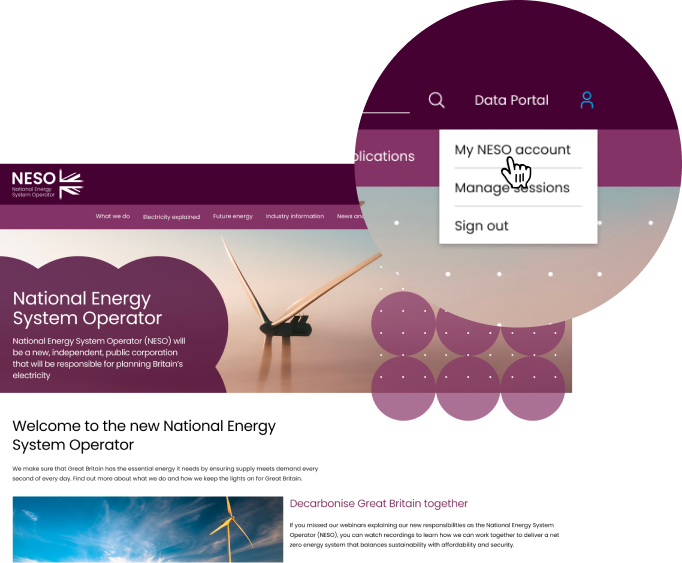A Day in the Life of a Technical Manager - Offshore Coordination
Our colleagues are at the heart of the ESO, working hard to operate a safe and reliable electricity system, whilst supporting the transition to a greener, and more efficient system for future generations.
Dr Biljana Stojkovska, Technical Manager for Offshore Coordination and Power Potential Project Lead, gives us an insight into her time at the ESO.
What was your background before you joined ESO and what made you decide to become an engineer?
I was good at sports, maths and physics at school and I find mathematical problems easy.
I also enjoy science and therefore engineering was the perfect route for me to take. When you have a natural talent at something it’s an easy choice to make.
Growing up in the former Yugoslavia (modern day Slovenia and North Macedonia), engineering was a prestigious profession just like being a doctor is here. I wanted a well-paid, respected and rewarding job.
I did my undergraduate degree in Macedonia, my masters in Slovenia and then my PhD in Power System Economics at Imperial College London. A lot of my PhD covered transmission investment for renewable generation and what network should we build for the future, which is a good foundation for all transmission planning activities.
Can you tell us about your role?
This is my 10th year at the ESO and I joined right after completing my PhD. I was direct entry rather than a graduate.
I started in power system design, then progressed to other engineering and leadership roles.
Now I focus on innovation and offshore co-ordination and I really enjoy both roles.
I have a passion for innovation. I’m proud to have worked on a world first project for a reactive power market from small generators.
It’s nice to be able to look at the data now the trials are live and see how it’s working. Together with project partners we designed an end to end system, which will provide a reactive power service for the control room.
Offshore coordination is a much more strategic role and involves long term network planning. My vision is how the network will look with increased offshore wind.
Offshore wind is becoming extremely important to our zero-carbon future, so a network which allows deployment of up to 100GW is crucial. Many technologies will play an important role like High Voltage Direct Current lines, and DC circuit breakers.
Currently I lead a team of consultants to develop the technical solutions. Then we consult widely with stakeholders to shape our thinking. Often my vision is correct but it’s vital to engage with our stakeholders who will ask valid questions to make the concept easier and better.
I feel it’s important to focus on the engineering and commercial solutions while managing political expectations. We need a vision and a commercial solution and that’s my teams focus.
How has the COVID-19 pandemic impacted you and your work?
Overall I’ve coped well with lockdown, but it’s not always been easy. It was a challenge to work on my own much more, and I’ve been a lot busier. I do feel that people are supporting each other more and there is a lot more collaboration.
Working from home is good to get peace and quiet when you need to get your head down into something. However, I’m a people person and I’m looking forward to getting back to normal face to face interaction in the office!
I managed to get some time away in Greece and I went to see my parents just before the second lockdown started. I’m aware many people haven’t been lucky enough to get abroad in 2020.
I’ve kept up my fitness during the year – running, cycling, yoga and outdoor swimming (when possible) to help me with my determination and perseverance during these difficult times.
I used to compete in athletics as a sprinter, and I played semi-professional handball in the national league. When I started doing my PhD I had to stop doing professional sport as I didn’t have the time so train at a high level. I’m still dedicated sportsperson but chose engineering as my career.
